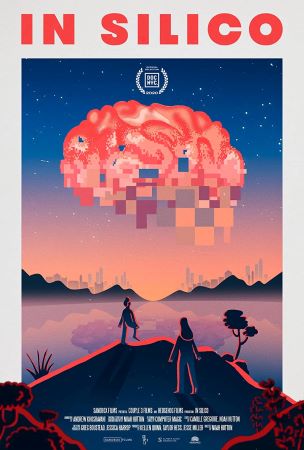
In Silico 2020
Distributed by Collective Eye Films, 1315 SE 20th Ave. #3, Portland OR 97214; 971-236-2056
Produced by Kellen Quinn, Taylor Hess, and Jesse Miller
Directed by Noah Hutton
Streaming, 83 mins
College - General Adult
Computer Science; Neurosciences; Technology
Date Entered: 03/20/2023
Reviewed by Steve Brantley, Head of Research, Engagement, and Scholarship, Professor of Library Services, Eastern Illinois UniversityIn Silico chronicles the ten-year project to create a digital simulacrum of a human brain and the fortunes and foibles accompanying such a grandiose and sprawling endeavor. Director Noah Hutton (Lapsis, Deep Time) also engages on a sprawling and grandiose project in his plan to create a ten-year documentary of Neuroscientist Henry Markram’s visionary goal.
Having studied neuroscience and been enamored of the accomplishments of Markram, Hutton is pulled in by the scientist’s alluring 2009 TED Talk about reinventing how we study the brain within Markram’s ten-year timeframe. Hutton skillfully interweaves interview, archival footage, natural world and ocean-documentary film with the dazzling computer-simulated brain tissue to help us understand the interconnectedness and complexity of life, evolution, and sheer mysteriousness of consciousness. Set against the narrative of the Blue Brain Project, Hutton also uses the story of Supercomputer Deep Blue and world chess champion Gary Kasparov, who, in 1997 was defeated by IBMs supercomputer to illustrate the differences between the perfect precision of computational models and biological organisms and mechanisms.
The film is visually quite remarkable since it incorporates the stunningly complex high-end graphic models of a mouse brain and then a human brain (though through the forests of neurons and dendrites one cannot distinguish between either) as the project progresses.
Hutton engages traditional documentary talking heads to engage the myriad and brilliant personalities of the film--both the project’s proponents and its skeptics--and inserts himself into the camera’s frame, as he is as central a character of the story as are the scientists with whom he speaks. Hutton narrates the film, and we are able to observe in his demeanor and hear in his voice a subtle shift from Hutton’s early enthusiasm as a wide-eyed fanboy (he was 22 when the project began in 2010) to a more mature, seasoned, somewhat fatigued and wiser 32-year-old filmmaker.
But as the end point of the ten-year project loom nearer and nearer and the promise of Markram’s TED talk seems further and further into an open-ended timeline, Hutton recognizes the fallibility of his hero. Hutton never romanticizes Henry Markram. While he as a young filmmaker was taken in by the excitement and promise backed by Markram’s prodigious accomplishments, The older Hutton composing the film at the end of the project does not allow his younger self’s naivete overtake the supposed objectivity of the film.
In Silico is both an excellent example of science documentary as it is a story of personal development and an examination of the power and resources that can be garnered by the force of a singular and determined personality. Academic libraries serving Technology and Biology programs will find this a useful teaching tool, and Graphic Design programs will also find value in it.
p>Awards: Official Selection of CPH:DOX 2021; Official Selection of DOCNYC 2020Published and licensed under the Creative Commons Attribution 4.0 license. Anyone can use these reviews, so long as they comply with the terms of the license.